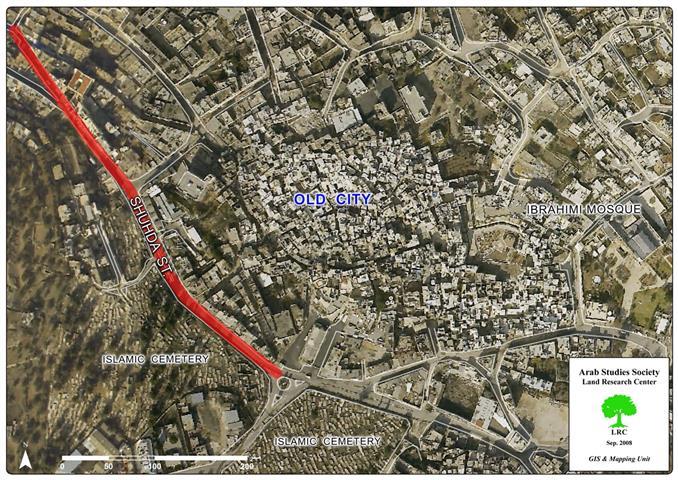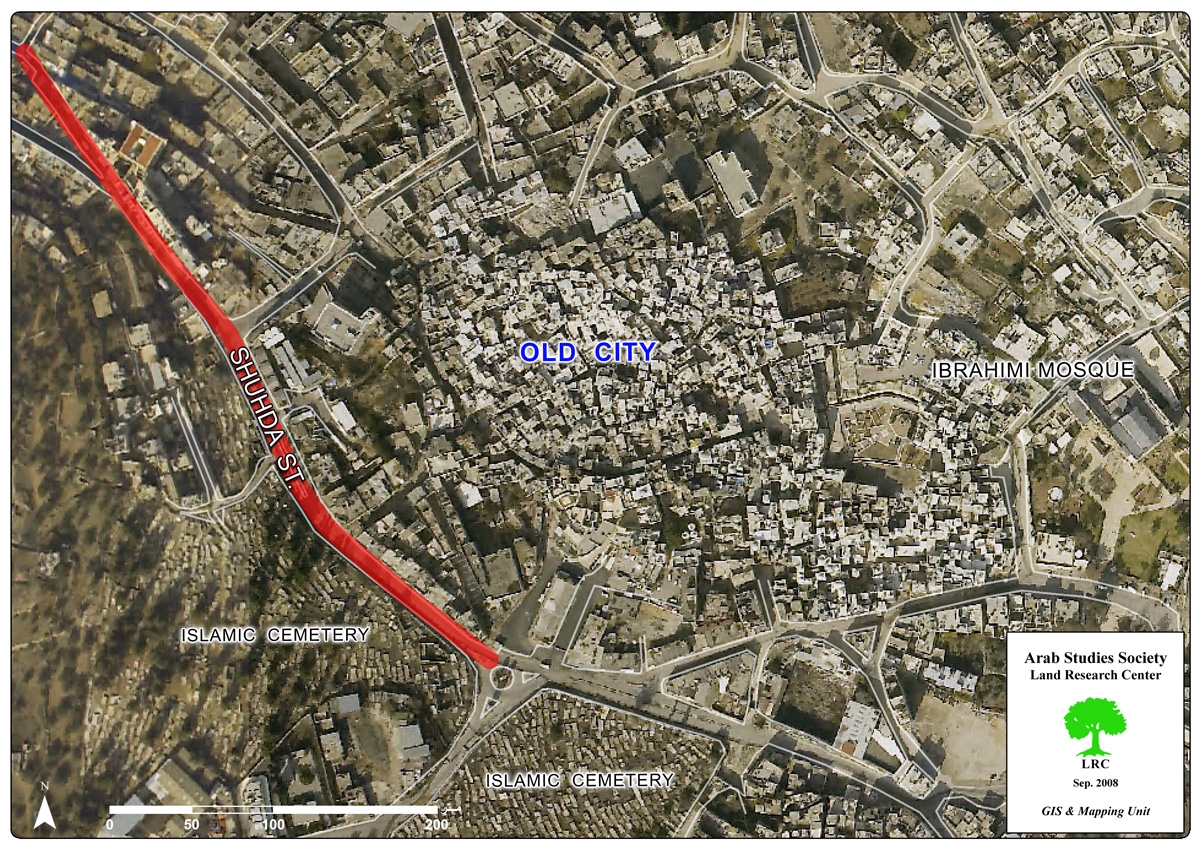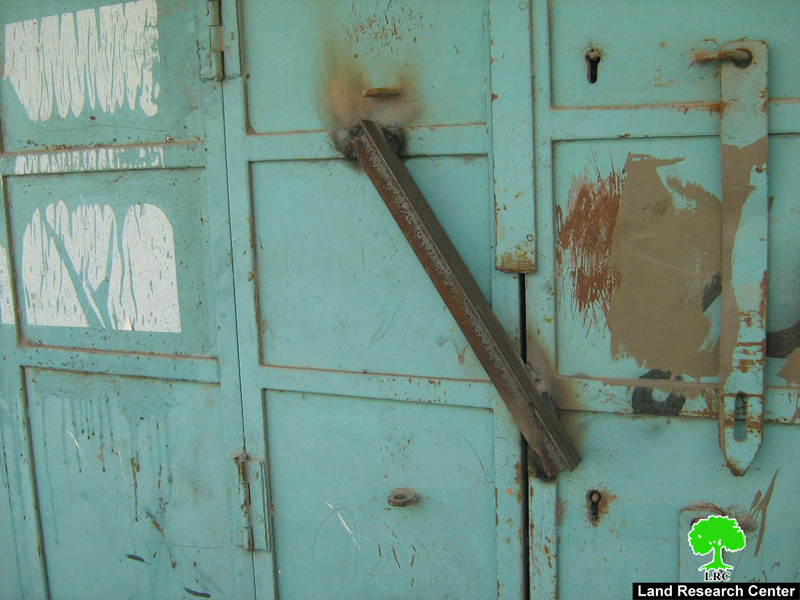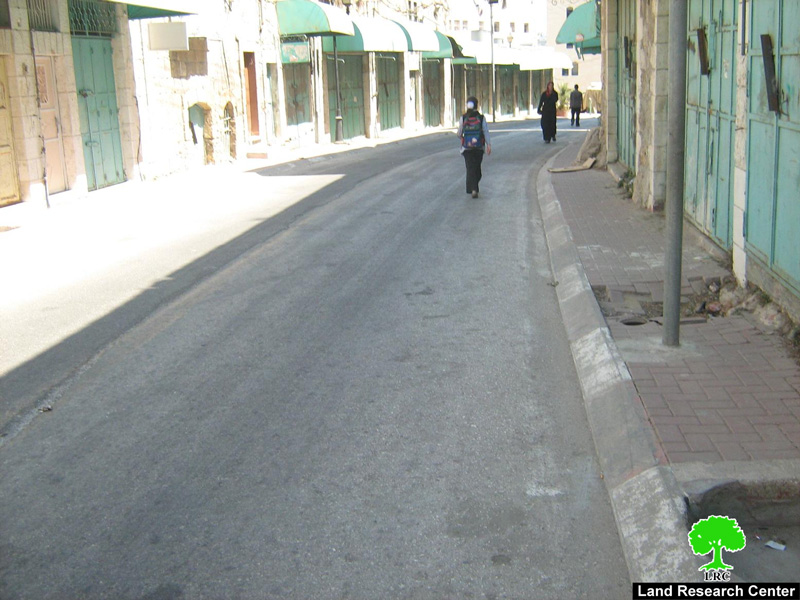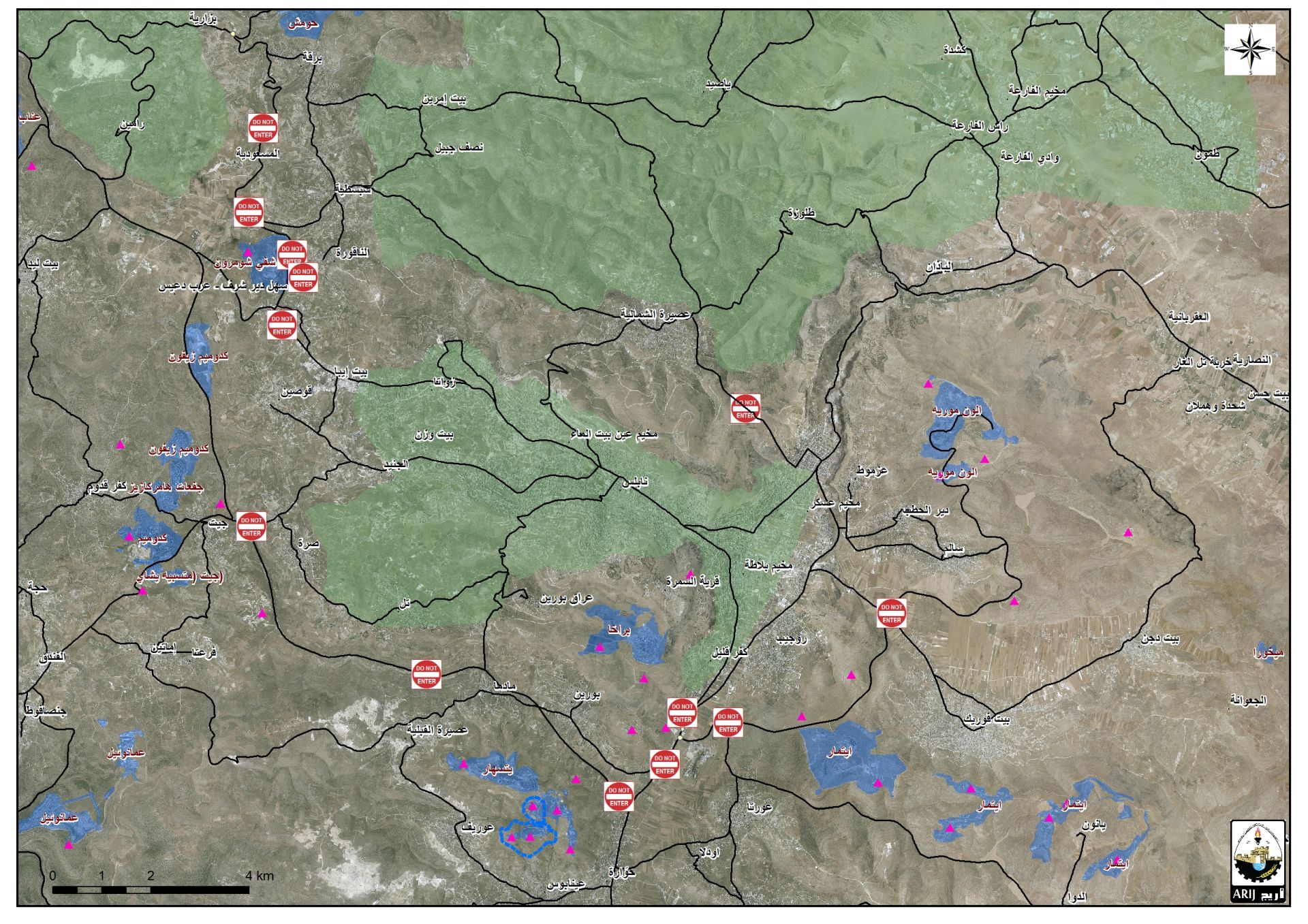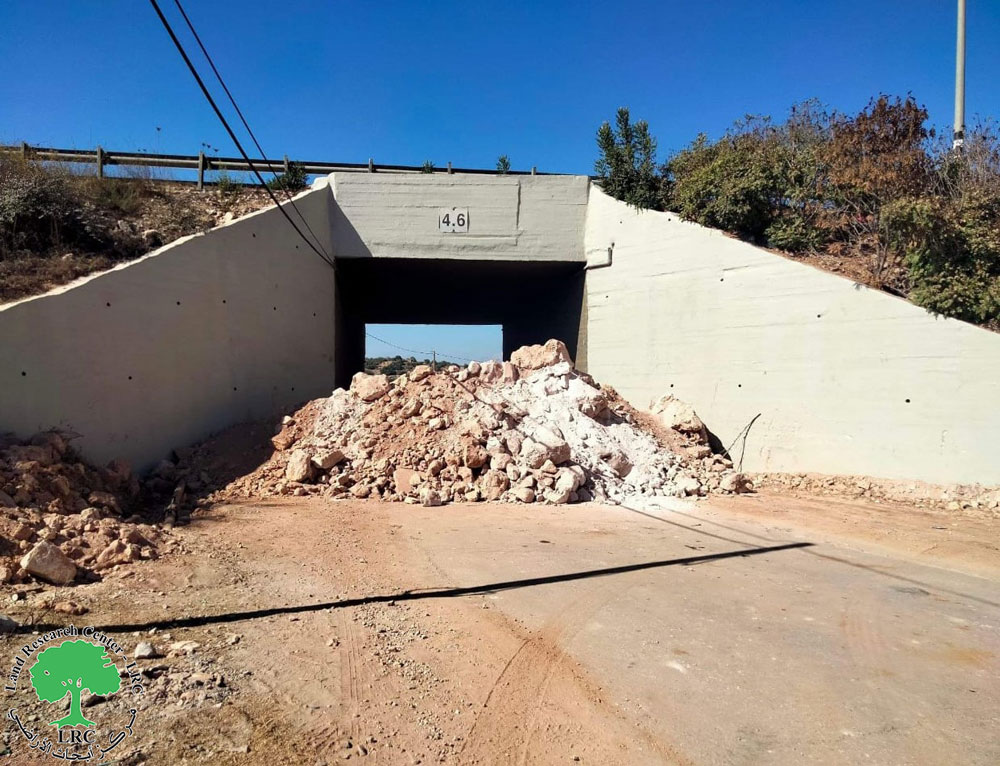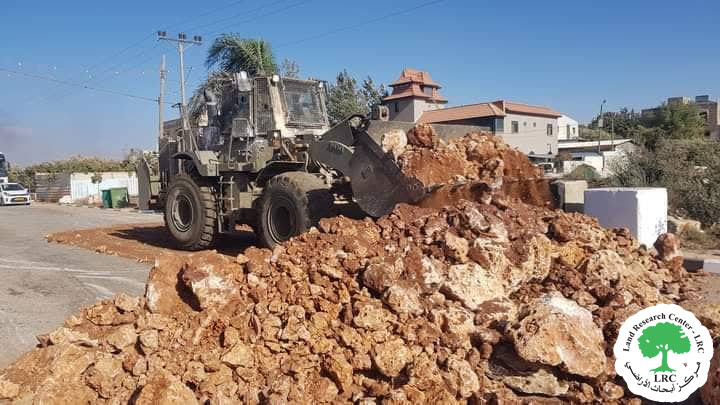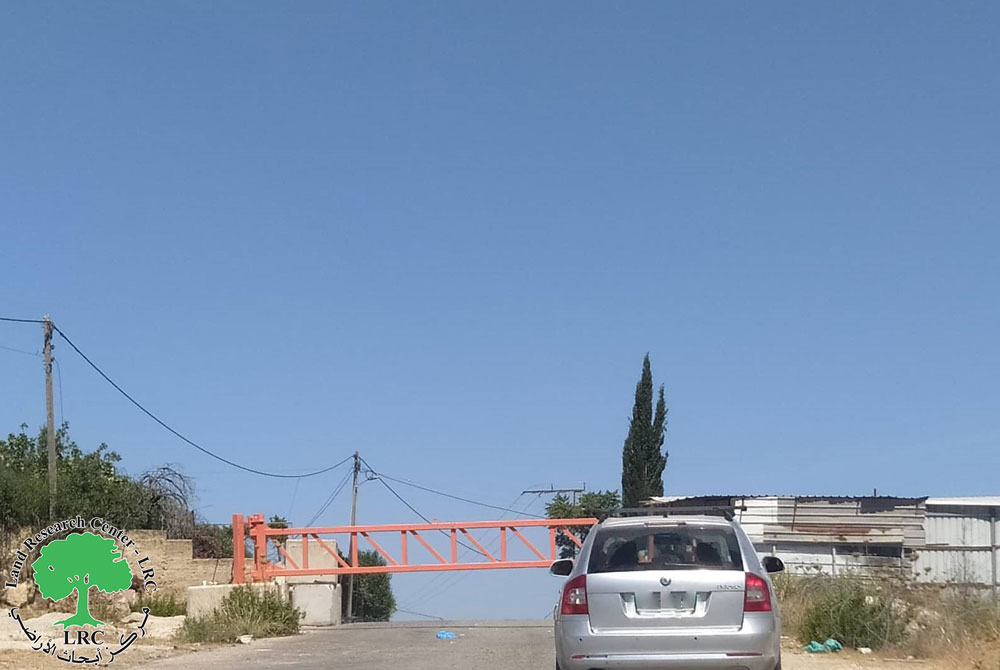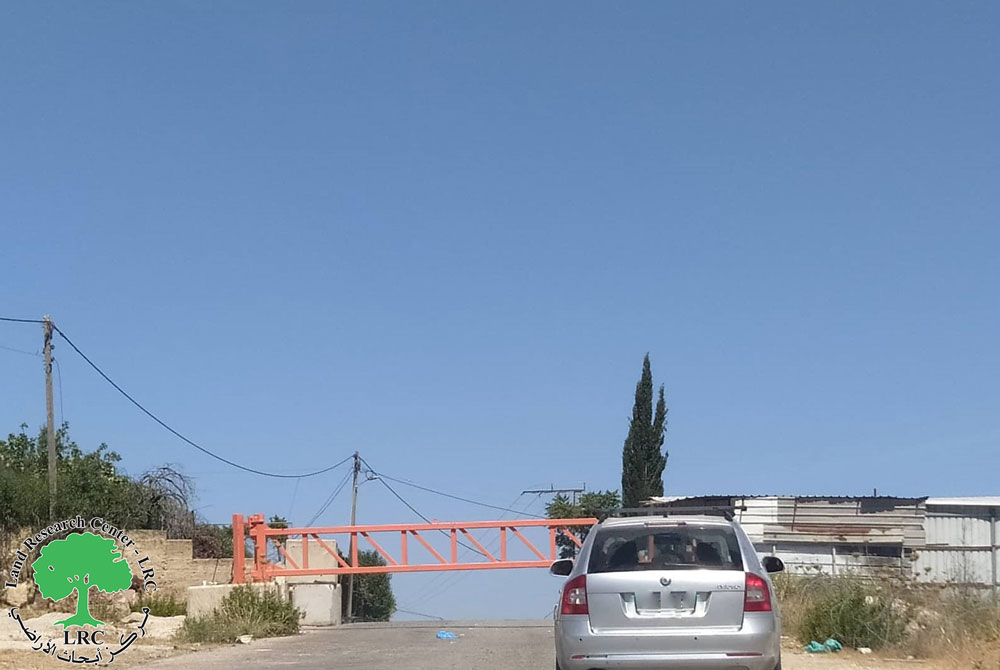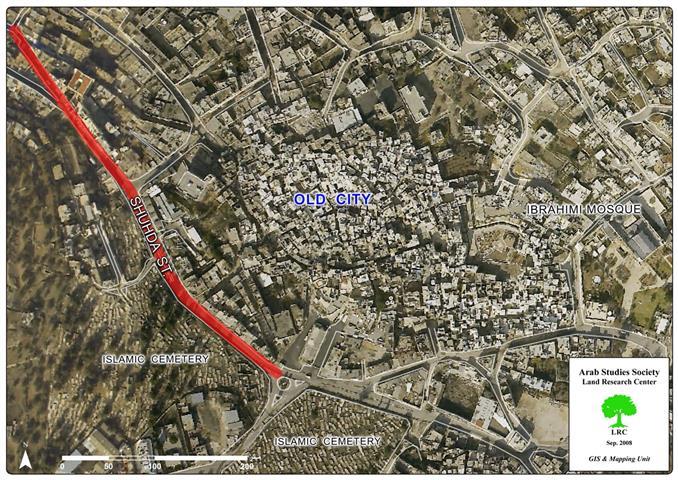Israeli occupation forces welded shut on the 3rd of September, 2008, the doors of 40 Palestinian shops in Al Shuhada Street in the heart of the City of Hebron. The welding took place despite the fact the targeted shops have been closed since the year 2000.
Photo 1: A welded-shut Palestinian shop in Al Shuhada Street.
The initial closure of the Al Shuhada Street took place in the aftermath of the 1994 Ibrahimi Mosque massacre perpetrated by the criminal Dr. Baruch Goldstein against kneeling Palestinian worshippers. As a consequence of the massacre, the Old City of Hebron was placed under curfew for 40 days during which whole streets were shut down including Al Shuhada Street. When the curfew was lifted occupation forces allowed Palestinian shop owners to open their shops only partially as only one door of the shop was allowed to be opened. Occupation forces claimed then that such a measure is needed to protect the Palestinians from any possible attacks by the colonists !!!!. The status quo continued until the year 2000 when the Israeli Military Commander issued a military order informing the owners of the shops that they could not open their shops before obtaining a permit from him personally or from the so-called “Civil Administration”. Since then, curfew against Palestinian movement in Al Shuhada Street has become a daily occurrence as well as the attacks by colonists from the colonies of Beit Hadasa and Tel Rumeida against Palestinian pass-byres.
Photo 2: The empty Al Shuhada Street as a result of Israeli repeated closures and attacks.
Between the years 2000 and 2003, Al Shuhada Street witnessed a tightened and closely watched complete curfew as well as a clear campaign against the Palestinian residents to force them to leave the area. A number of Palestinian families have actually fled the area in fear for their lives and to seek other safe havens. However, other families were obliged to stay as they could not afford to rent another house outside of the area. The number of those families is about 10 from the clans of Al Khateeb, Al Nazer, Al Bayed, Fanoon and Ramadan.
The residents of Al Shuhada Street were taken aback when they saw Israeli soldiers on the 2nd of September, 2008 welding shut the shops in their street. The welding was carried out despite the fact that those shops were opened occasionally and only for ventilation purposes. A house was also welded shut during this Israeli campaign. The house (which belongs to Mrs. Feryal Abu Haykal) is a 140-m2 old house located on a second floor in the middle of Al Shuhada Street. It is uninhibited as it needs some serious renovation.
The Closed Shops:
According to the remaining residents of Al Shuhada Street, 7 of the welded shops were used to sell glassware and frames. These shops were owned by members of Zalloum and Abu Markhiya clans. Other shops included a barbershop, car spare parts shop, a tailor, a textile and clothes shop in addition to a gym and a shop to fix sewing machines. The closure of these shops since 2000 has caused a severe economical blow to their owners. In addition, the strict curfew on the Street has led to the migration of a large number of the families that used to live there. These two instruments (closure of shops and strict curfew) are only tools in a pre-programmed plan by the Israeli occupation authorities and forces that is aimed at making life unbearable in that section of the City of Hebron for the Palestinian residents. The execution of the plan has led to their transfer outside of the region for the benefit of the Israeli colonists living nearby.
Photo 3: An overview of the Old City of Hebron in which the Ibrahimi Mosque appears.
As to enforce the policy of transferring the Palestinian population living in the Street, a permanent checkpoint (consisting of a caravan and a metal detector) was placed on the 1st of September, 2005, on the road connecting between the Street and Bab Al Zawiya. Israeli occupation soldiers manning the checkpoint check the IDs and the bags of anyone wanting to access Al Shuhada Street from the direction of Bab Al Zawiya. The Land Research Center’s field worker has observed a large number of school students stuck at the checkpoint under the heat of the summer sun in the month of Ramadan. Access through the checkpoint depended largely on the mood of the soldiers.
A reminder:
It is worth pointing out that the opening of Al Shuhuda Street for Palestinian commerce and vehicular and on-foot transportation was imbedded in the Hebron Protocol signed in 1997 between Israel and the PLO. Yet, this item of the Protocol was never implemented while other pro-colonist items were dully executed. As such, Al Shuhauda Street, after more than 10 years of its supposed opening date, is still closed and empty. It is just the perfect conditions for a colonist takeover of what remained of the Street.
Prepared by:
The Land Research Center
LRC


